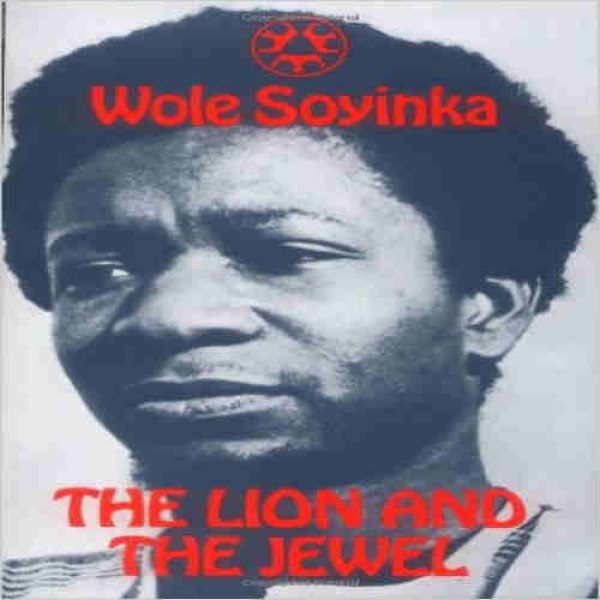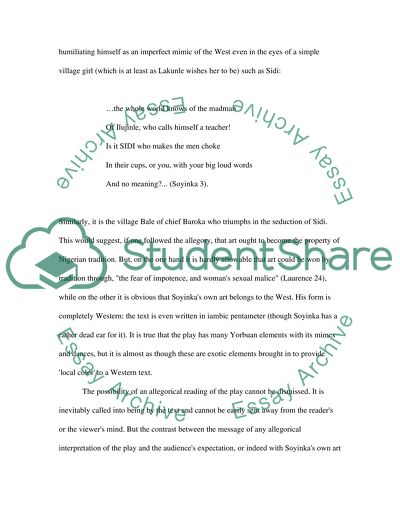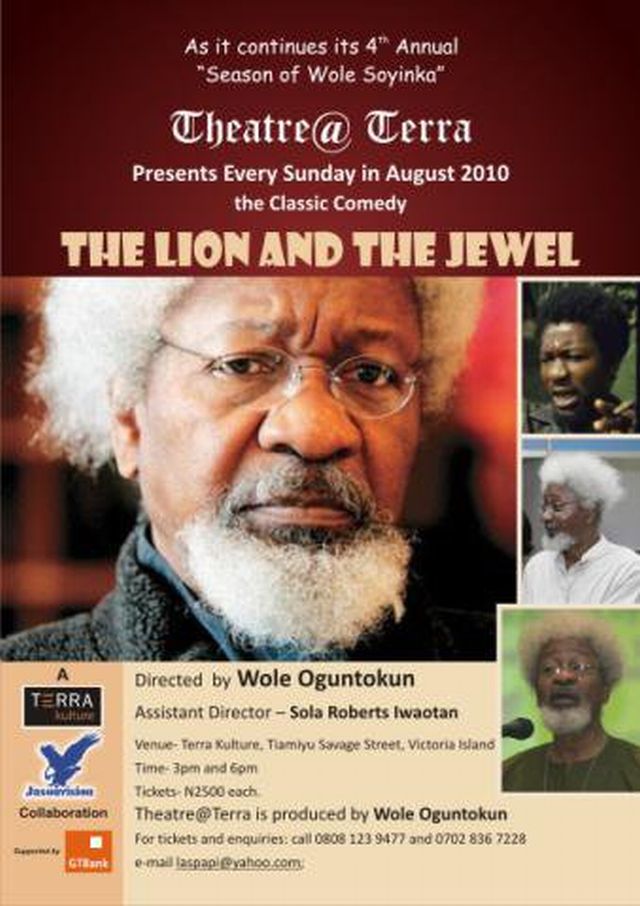

It takes place around the 1950s, right before the Nigerian Independence movement. Its overall size is good for anyone who wants a small play with a lot of content. The Lion and the Jewel is a quick read that is witty and fun to read. Whether that is good or bad is unclear to me but interesting to think about. The 'Lion', representing the traditional values and culture, was not as weak and aged as he appeared to be - I assume that is Soyinka's way of saying that the tradional culture isn't as ready to fade away either. As a Westerner myself, I started out with the preconceived notion that modernization would be a beneficial change but by the end of the play, I was not so sure. The village is still traditional in its daily life but one senses that it is on the verge of change.

The headman of the village, 'the lion', is in his 60s and has several wives and concubines already but can pay.

The play deals with the conflict between traditional ways and modernization for example, should a man pay a bride price in order to marry? The young schoolmaster, a believer in Western culture, wants to marry 'the jewel' Sidi but doesn't want to pay her bride price claiming it is old-fashioned (though the reader/viewer is also left with the impression that he can't afford it!).

Wole Soyinka presents the custom and traditions of Yoruba in the play The Lion and the Jewel and he created significant characters, who defends the modernity because they are deeply rooted with old custom and tradition of their culture.A thought-provoking play by the first African author to win the Nobel Prize in Literature. The play sets in the village named Ilujinle in West Africa, and it has the characteristics like comedy, love, myth, folklore, dance, music, and cultural conflict between old culture and new culture, because the old culture was followed by uneducated people, they were led by Baroka and the new culture was followed by Lakunle, who works as a teacher in that village. Culture is to incorporate every one of the aspects of human experience that stretch out past our actual truth, culture alludes how we comprehend ourselves both as people and as member of the society incorporates stories, religion, media, ceremonies, and even language.The Europeans colonization in African made many changes in their culture, some people thought that they are reformed by the European, but some thought that their culture was changed by them. Culture can be perceived as a bunch of regular convictions that hold individuals together, these normal convictions lead to social practices, and practices that are instilled with significance. This article attempts to pinpoint the interaction of Cultural Representation in Wole Soyinka’s play The Lion and the Jewel.


 0 kommentar(er)
0 kommentar(er)
